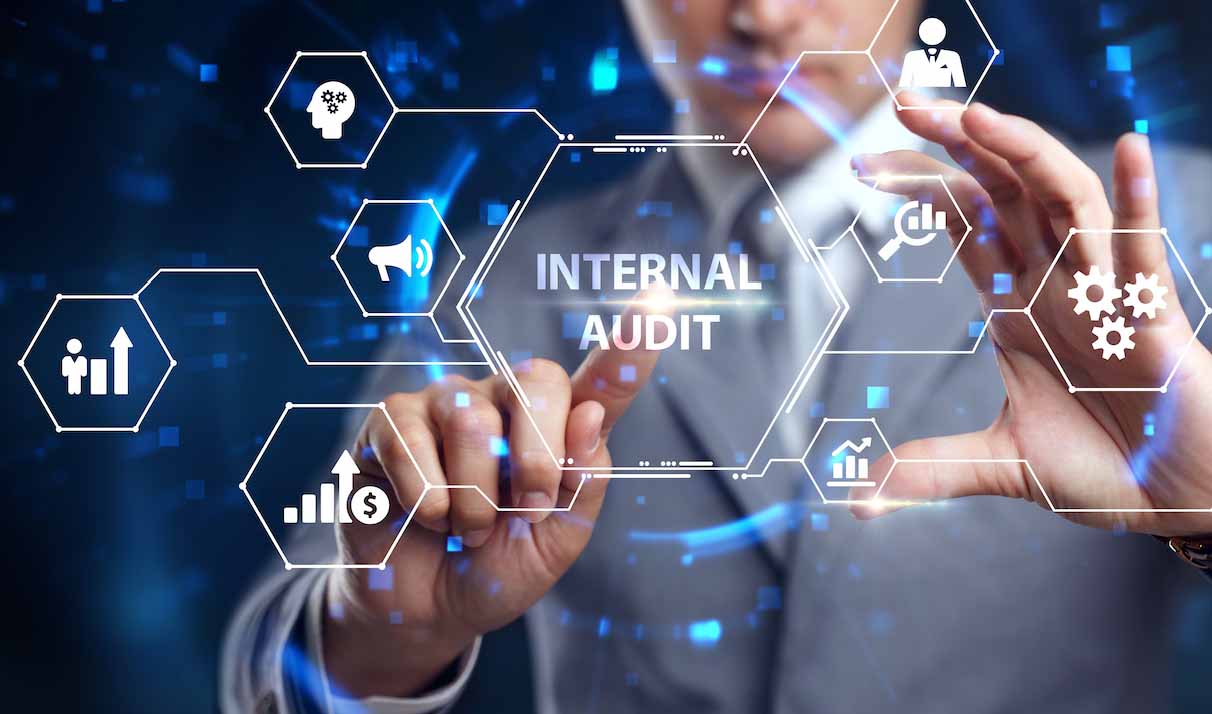Are you wondering what an internal auditor does? If so, you’ve come to the right place.
Internal auditing is a process designed and conducted by companies to check their efficiency and effectiveness. Internal Auditors check the various components of an organization including its management, process, policies and procedures for errors, deviations, non-compliance and improvements.
Read on to discover the difference between an external audit and an internal audit. Find out how an internal audit works and who conducts it. Here’s a quick primer on internal auditing:
What is an Internal Audit?
Internal auditing is an independent consulting and assurance activity that adds value to an organization. Its purpose is to identify areas of improvement and to ensure that all regulatory procedures are followed. As an independent, objective organization, internal auditing can help improve operations. By identifying weaknesses and recommending improvements, internal auditors can help organizations become more efficient and effective. Here are some of the main benefits of internal auditing:
It is independent of the executive management. The work of internal auditors is usually unbiased, and they report to the Board of Trustees and the audit committee chair. The internal auditor reports to the latter in order to prevent conflicts of interest or breaches of independence. However, internal auditors must report their findings to the Board of Directors, so they need to be independent and impartial. If the auditor is part of an executive management team, he or she must report directly to the CEO.
Internal audit vs External audit
Both external and internal audits have their uses, but how do they differ from one another? While independent auditors generally carry out external audits, internal audits are performed by employees of the organization themselves. Although they are different, both provide valuable assurance regarding the organization’s internal control. In addition, internal audits are a necessary part of a good internal control system. In a larger organization, internal audits play a critical role in improving business operations and adding value.
The two types of auditing have different goals. Internal audits review and analyze financial statements for a company. They are usually conducted by a department of the institution, but can also be performed by an outside party. The scope of an internal audit is determined by the management or relevant authority. Ultimately, the internal audit must be independent and report directly to the board, but may report through the audit committee. Moreover, internal audits are more likely to focus on areas that external auditors would otherwise miss.
How does an internal audit work?
How does an internal auditor do their job? This role involves meeting with key executives and gathering relevant information about the unit they are reviewing. They must be unbiased and resilient when under pressure.
First, it’s important to understand the scope of what an internal audit is. The scope of the audit varies depending on the organization and its needs, but generally an internal audit will review everything from financial records to employee procedures. The purpose of this review is to make sure that everything is being done correctly and effectively within the organization—and if not, what steps need to be taken in order to improve performance.
The next step in understanding how an internal audit works is knowing who will perform it: typically either an external company or someone within your own company who has been trained as an auditor by either a third party or your own firm itself. This person will look at all aspects of your business from financials down through customer service and even IT systems if necessary; their job is basically just to ensure that everything is running smoothly!
When a company has engaged an internal auditor, the auditor notifies the client and discusses the scope of the audit with management. The auditor gathers information on important processes and procedures, reviews existing controls, and plans the remaining steps of the audit. The auditor informs the client of the audit through a letter that describes the scope of the audit and the internal auditors assigned to the project. The client is then given an opportunity to review and comment on the audit findings.
Who conducts an internal audit?
Internal auditors are responsible for ensuring that a company’s financial reporting is accurate and meets regulatory requirements. They also check internal controls, which are the processes a company uses to protect assets and ensure reliable data.
The role of an internal auditor varies by organization, but generally speaking, they’re responsible for ensuring that a company’s financial reporting is accurate and meets regulatory requirements. They also check internal controls, which are the processes a company uses to protect assets and ensure reliable data.
How do I become an internal auditor?
Becoming an internal auditor requires formal education or training from an accredited institution like a college or university with a degree program in accounting or finance. The minimum education requirement varies depending on the organization where you work, but most companies require auditors have at least a bachelor’s degree in accounting or finance.
What does an internal auditor do?
Internal auditors review financial records and test internal controls to ensure that all transactions are properly recorded according to established guidelines set forth by management and external regulators such as the Securities Exchange Commission (SEC). Internal auditors also provide recommendations for improving business processes based on findings from their audits, which can include
Sign up for internal audit training
When it comes to internal auditing, your education matters. Bankershub offers certification programs that provide you with the knowledge and skills necessary to carry out your role efficiently. Internal audit is an important part of the financial services industry. It’s a key way for companies to ensure their compliance with regulations and internal policies, but it does more than that—it also helps protect the company from internal fraud and ensures that financial statements are accurate.
If you’re looking to get started in internal auditing, or if you’re looking to advance your career in this area, consider enrolling in our online course. Our online course will provide you with an introduction to the field, including information on how internal audits are performed and why they’re important. You’ll learn how organizations can use different types of audits to reach their goals, and how auditors can use their skills and experience to help organizations improve their operations.







